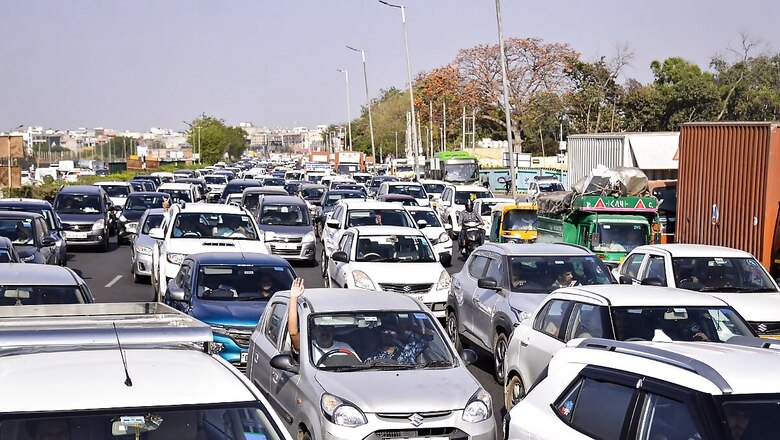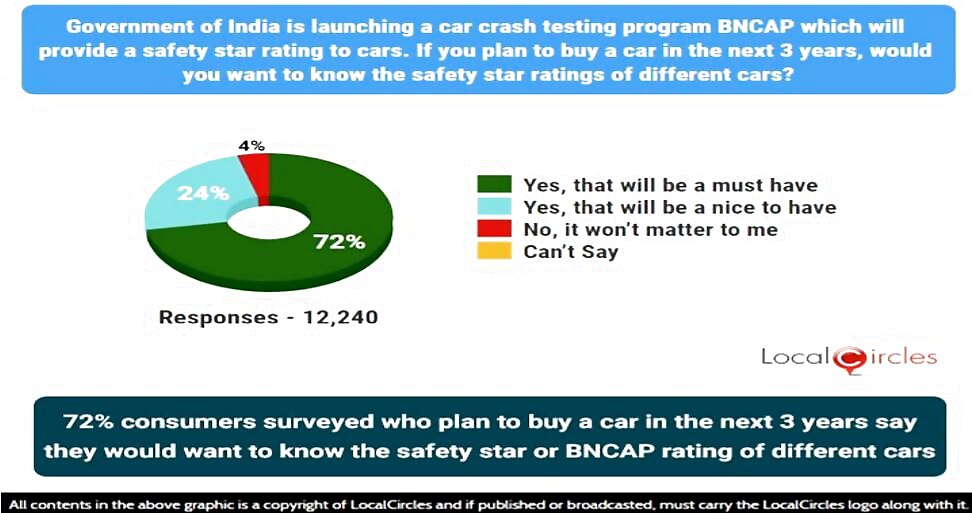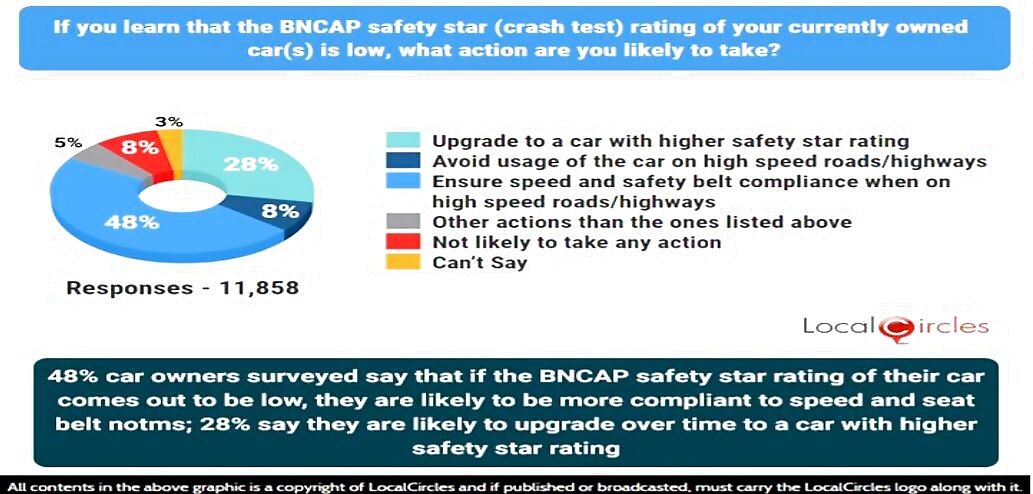
views
Union Minister Nitin Gadkari earlier this week launched the country’s first crash testing programme, Bharat NCAP, which is aimed at improving road safety standards of motor vehicles up to 3.5 tonnes.
It will be implemented from October 1 this year. Under the programme, car manufacturers can voluntarily offer their vehicles tested as per the Automotive Industry Standard (AIS) 197. Based on the performance of the car in the tests, the vehicle will be awarded star ratings on a scale of 0-5, for adult occupants (AOP) and child occupants (COP).
Potential car customers can refer to these star ratings to compare the safety standards of different vehicles and accordingly make their purchase decision. According to a survey by LocalCircles, 72% respondents plan to do exactly that.
According to the survey report, around 24,000 responses were received from citizens located in 271 districts of India. Around 68% respondents were men, while 32% were women. Roughly 45% respondents were from tier 1 cities, 33% from tier 2 and 22% were from tier 3, 4 and rural districts.
Around 72% of consumers surveyed who plan to buy a new car in the next three years indicated that they “would want to know” the safety star or BNCAP rating of different cars available in the market. Of the remaining respondents, 24% also felt it “would be nice” to know the ratings. However, only 4% of the respondents stated that “it won’t matter to me”.

Around 48% of existing car owners surveyed stated that if the BNCAP safety star rating of their car comes out to be low, they are likely to “ensure speed and safety belt compliance when on high-speed roads/highways”.
Of the remaining respondents 28% indicated that they would “upgrade to a car with higher safety star rating”; 8% indicated that they would “avoid usage of the car on high-speed roads/ highways”; 8% of the respondents stated they are “not likely to take any action”.

“All in all, the survey indicates that these BNCAP safety star ratings are likely to create awareness about car safety and drive more people towards safer cars. However, the move is also likely to make cars less affordable in India over the coming years. One of the initiatives the government and carmakers may want to consider taking up is minimizing price impact while including some of the basic safety features in the affordable cars segment,” the survey report concluded.



















Comments
0 comment